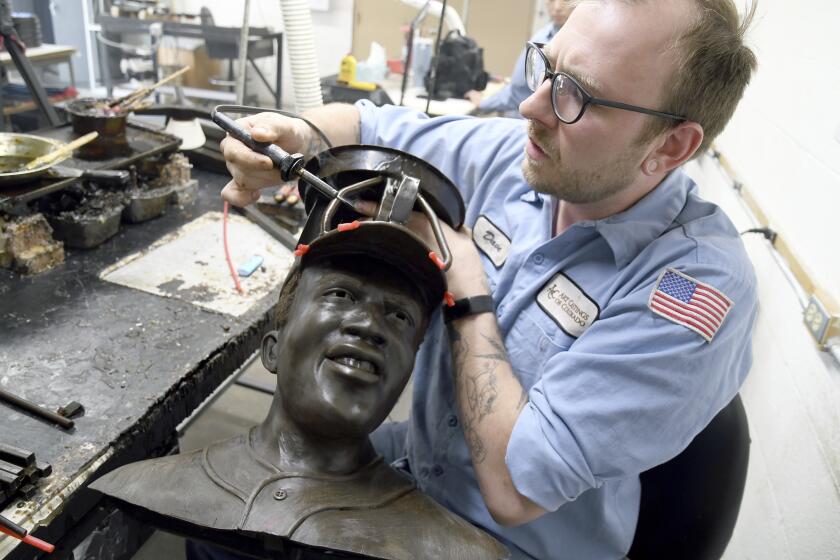No Answer : The Oft-Quoted ‘That’s a Good Question’ Could Be a Code for ‘Ask Not’
HERB YATES of Venice is puzzled by the meaning of a common response to a question, usually given by a person being interviewed.
“An interviewee is asked a question,” Yates says, “and he or she responds, ‘That’s a good question.’
“What does ‘That’s a good question’ mean?”
That’s a good question.
Yates himself offers three possible explanations:
“(1) The interviewee considers all the previous questions inane. (2) The interviewee knows a good answer for that one and was hoping it would be asked. (3) He or she doesn’t know a good answer and is stalling for time.”
I suspect that Yates has had some experience as a reporter. Every reporter is familiar with that phrase, and his guesses as to its meaning are close, at first glance.
I have interviewed many people in all walks of life: generals, movie stars, murderers, ex-Presidents or Presidents-to-be (no sitting President), writers, wrestlers and female jockeys. I have rarely interviewed anyone who didn’t at some point say, “That’s a good question.”
It could mean, as Yates suggests, that previous questions have been so inane that the interviewee is relieved to hear one that deserves an answer. But I am doubtful of that explanation because I have never heard “That’s a good question” followed by a satisfactory answer.
It is possible, according to Yates’ second supposition, that the interviewee has a good answer and was hoping for the question. Again, my experience makes me doubtful.
Yates’ third suggestion, that the interviewee is stalling for time, is the most probable.
The common illustration of a question that admits no satisfactory answer is the classic, “Have you stopped beating your wife?”
Naturally, if the man says “Yes,” he has admitted beating his wife in the past. If he answers “No,” he has implied that he has beaten his wife in the past and that he is still doing so.
On the other hand, if he answers, “That’s a good question,” he is hopelessly compromised. Why is it a good question if it puts him in the position of being unable to give an answer that will not incriminate him?
The only persuasive answer he can give is, “I have never beaten my wife, I do not now beat my wife, and I never will beat my wife.” Of course there is a tone of overreaction in that orotund answer. It is the kind of answer that gives the questioner reason to doubt its sincerity.
Whenever anyone I was interviewing said to me, “That’s a good question,” I usually felt a sort of warmth, as if I were, after all, a sharp reporter who asked this person the very question that would force him to express some previously concealed opinion.
I soon realized this was nonsense. What the interviewee was really thinking was: “This guy is a pain in the neck. He’s trying to trick me into saying something stupid. I’d better see if I can get him on my side.”
Whereupon the pause, the little exhalation of breath, the deferential smile and the gracious acknowledgement: “That’s a good question.”
On the other hand, the phrase has undoubtedly saved many an interviewee from an embarrassing answer. How much better off Al Campanis, late of the Dodgers, would be today if he had answered, when asked why he thought there were so few blacks in baseball management, “That’s a good question,” instead of what he did.
Jimmy the Greek would probably still have his job on TV if he had said, “That’s a good question,” instead of volunteering the answer he did.
“That’s a good question” usually passes for an answer itself. It eases the moment of tension. The interviewer is momentarily satisfied, and the interviewee can, with relative safety, go on to the next question, which, he may hope, is not as good.
We will undoubtedly hear “That’s a good question” many times in the remaining months of the presidential campaign. But most of the questions will already have been asked and answered or evaded.
The safest answer is, “I have never beaten my wife.”
It’s so much more gratifying than “No comment.”
More to Read
Start your day right
Sign up for Essential California for news, features and recommendations from the L.A. Times and beyond in your inbox six days a week.
You may occasionally receive promotional content from the Los Angeles Times.






